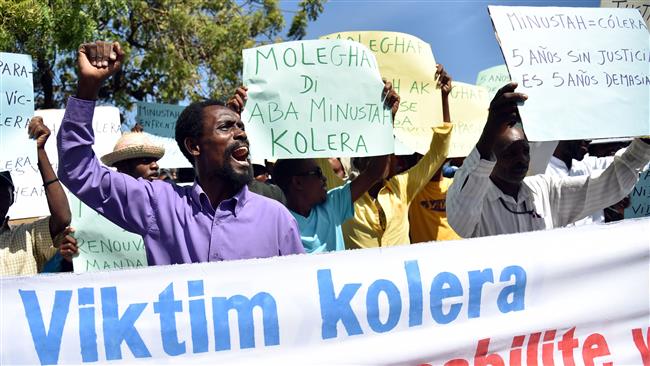US court says UN not liable for cholera outbreak in Haiti


A US appeals court has ruled that the United Nations cannot be sued in American courts for the introduction of cholera in the Caribbean state of Haiti.
The ruling by the three-judge panel in New York City was released on Thursday, dealing a setback in a class-action lawsuit brought on behalf of thousands of cholera victims in Haiti.
A spokesman for UN Secretary General Ban Ki-moon acknowledged for the first time on Wednesday that the international body played a role in the Cholera outbreak, which killed thousands of people.
The appeals court said that the UN did not lose its legal immunity even if it failed to give the plaintiffs a chance to seek a settlement.
In 2011, lawyers with the Institute for Justice and Democracy in Haiti filed the case, Georges v. United Nations, in the United States District Court for the Southern District of New York, which ruled in favor of the UN in early 2015.
Thursday’s ruling was in response to an appeal of that decision. The plaintiffs’ lawyers have 90 days to decide whether to appeal to the US Supreme Court.
Repeated studies by scientists have found that cholera was almost definitely introduced to Haiti by soldiers from Nepal with the UN peacekeeping mission there in 2010.
The soldiers had recently arrived from Nepal, where a cholera outbreak was underway. They were stationed in an isolated rural base that UN’s own investigators found was prone to leaking human waste into an adjacent river.
According to the US Centers for Disease Control and Prevention, the ongoing cholera outbreak in Haiti is the worst epidemic of cholera in recent history.
More than 700,000 Haitians have become ill with cholera and the death toll has climbed to nearly 10,000, but some scientists believe it is much higher.
It has also badly damaged Haiti’s economy and further torpedoed the recovery from the 7.0-magnitude earthquake that struck the southern part of the country in 2010.




